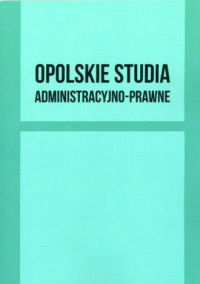Niektóre aspekty funkcjonowania wyznaniowych placówek opiekuńczo-wychowawczych w realiach Polski Ludowej
Certain aspects of the functioning of denominational care-educational institutions in the reality of the People’s Republic of Poland
Author(s): Andrzej SzymańskiSubject(s): History
Published by: Uniwersytet Opolski
Keywords: CHARITABLE ACTIVITY; THE PEOPLE’S REPUBLIC OF POLAND; BOARDING SCHOOLS; SOCIAL CARE; REARING; THE OFFICE FOR MATTERS RELATED TO DENOMINATIONS
Summary/Abstract: The paper consists of three parts representing different degrees of autonomy within the scope of the subject area encompassed by the title. In the first part, the author discusses questions which are little known about, relating to a number of monastic orders applying after 1956 for the restitution of their property which they had been deprived of in the earlier time. Apart from that the orders appealed for having formerly liquidated care-educational centres run by them reopened. The party-state authorities did everything in their power not to execute the restitution and to prolong the relevant formal procedures, employing the existing legal norms for that purpose. When, in 1981, in consequence of the collapse of the state social care system, the authorities began to grant official permissions to religious orders to establish and run denominational care institutions (which is discussed in the second part of the paper), they had to exempt the interested orders from “the requirement of the secular nature of care-educational activity which is run” on the basis of Art. 39, item 3 of the extremely anti-clerical Act on development of education and rearing of 15 July 1961, which was taken advantage of earlier to liquidate the denominational school system in Poland. One can hear history snigger here… An issue which is connected with the above-mentioned problem is the question of subsidizing the social care activity of denominational organizations by the state – the People’s Republic of Poland. Without such subsidies the majority of institutions would not have been able to function at all, and it was withholding the subsidies that for many years had been one of the easier, though somewhat time-consuming, ways of liquidating church-based institutions. Beginning with the second half of the 1970s, the modus operandi of the authorities, regarding this sphere, started to undergo changes. In some cases the authorities of individual provinces went as far as to offer to monastic orders to subsidize the care centres run by the latter, still the offer was not always accepted: the experience of many decades had taught the orders to beware of too strong dependence on this type of support, the more so as, in many cases, they had learned to function in the area of charity and were able to survive without the aid from the public purse. Thus, it was also in this sphere where the authorities of the socialist state were forced to move beyond the frames of the anti-monastic and anti-clerical law which they had established themselves.
Journal: Opolskie Studia Administracyjno-Prawne
- Issue Year: X/2012
- Issue No: 4
- Page Range: 95-112
- Page Count: 18
- Language: Polish

